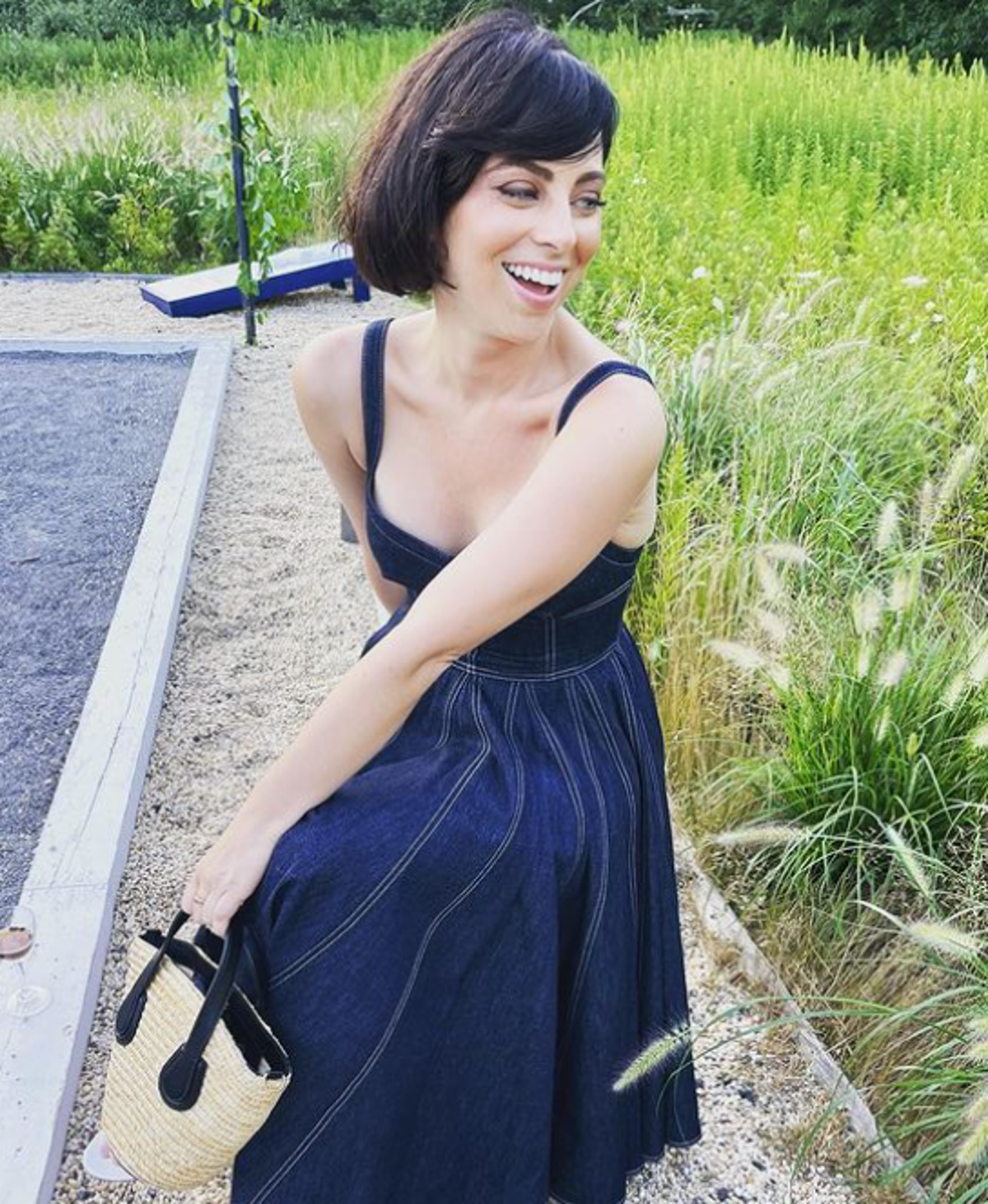Spreading Breast Cancer Awareness
- Krysta Rodriguez, a California native, was first diagnosed with breast cancer at the age of 30. Despite learning she had cancer and having to undergo treatment, she continued working.
- Now 38, the actress and singer, embodies resilience and strength as she’s prepared to host a benefit concert in New York City to raise awareness for ABCD: After Breast Cancer Diagnosis, a nonprofit that offers personalized one-on-one emotional support to those facing breast cancer diagnoses.
- The CDC reports that breast cancer mostly occurs among older women, but it's possible for women under the age of 45 like Krysta to be diagnosed with this type of cancer. In fact, about 9% of all new breast cancer cases in the U.S. are found in women younger than 45.
The Orange County, California native a new addition to Broadway's “Into the Woods” revival starring as Cinderella is set to host a benefit concert on September 12 in New York City to raise awareness for ABCD: After Breast Cancer Diagnosis. The nonprofit offers personalized one-on-one emotional support to those facing breast cancer diagnoses.
Read More
In regards to the nonprofit event she is hosting, which will be live-streamed at midtown summer club 54 Below at 8 p.m., Krysta told the Post. “It's going to be a night of some favorites of mine from shows that I've been in, some Liza stuff, some Broadway stuff, a couple of jazz tunes, some mashups. We're going to address my journey with cancer, but we're also going to have a fun and uplifting night of entertainment.”

The Monday night event comes as Krysta has returned to Broadway. The actress last performed on the great white way in “Spring Awakening” in 2015. She joined the cast of “Into the Woods” earlier this month.
"It feels great … I have waited a long time because I wanted to [have] the right project and this just felt like the right project. So it really does feel really exciting to join the cast," she told the Daily News.
Breast Cancer in Women Younger than 45
Breast cancer is the most common cancer among women in the United States, according to the U.S. Centers for Disease Control and Prevention.
The CDC also reports that breast cancer mostly occurs among older women, but it's possible for women under the age of 45 like Krysta to be diagnosed with this type of cancer. In fact, about 9% of all new breast cancer cases in the U.S. are found in women younger than 45.
But in some ways, a diagnosis for a younger woman can often be even more devastating, Dr. Ann Partridge, an oncologist at Dana-Farber Cancer Institute in Boston, told SurvivorNet in a previous interview.
Aggressive Breast Cancer in Young Women
This is because the cancer is likely to be a more aggressive form of the disease and also at an advanced stage, as screening for younger women is not standard.
It’s important to know it is possible for young women to get breast cancer, so listening to your body when something doesn't feel right is vitally important.
Recovering from Breast Cancer
After a cancer diagnosis, it feels like a tablecloth has been pulled out from under you. It's extremely overwhelming. Getting opinions and condolences from family, friends, survivors, doctors, and nurses. It's hard to know where to turn as you adapt to your new normal.
Some women have surgery, some chemo sessions, and it's over. They seemingly bounce back to their normal lives. Others can have complications after surgery for years and suffer trauma, as Momi shared, or an experience more in the middle. There is no journey that is the same.
One thing that many cancer survivors will agree with, is that although their futures may seem more uncertain after a life-changing experience, they live to appreciate each and every day.
"My patients who thrive, even with stage 4 cancer … I kind of am pretty good at seeing who is going to be OK," Dr. Zuri Murrell, a surgeon at Cedars-Sinai Medical Center in Los Angeles, told SurvivorNet in a previous interview.
"Now (that) doesn't mean I'm good at saying that the cancer won't grow," he said. "But I'm pretty good at telling what kind of patient (is) going to still have this attitude and probably going to live the longest. … Those are patients who they have gratitude in life."
Many patients will say that their lives, overall, changed for the better and shaped them into different people. So, no matter what part of the journey you are on, it is important to hold out hope that this dreadful disease happened for a reason, and always keep pushing forward.
Contributing: Marisa Sullivan
Learn more about SurvivorNet's rigorous medical review process.


